This year’s Clean Space Days had the largest attendance yet and featured very interesting presentations about Life Cycle Assessment and Ecodesign for space, zero debris, and In-Orbit Servicing.
Hosted at ESTEC, the technical center of ESA in the Netherlands, the event is the place to discuss space sustainability.
The 2024 edition marked a milestone for space sustainability, drawing record attendance at ESA's ESTEC facility in the Netherlands. This year's event spotlighted crucial developments in Life Cycle Assessment (LCA) and Ecodesign for space, zero debris initiatives, and In-Orbit Servicing technologies. The gathering provided a pivotal platform for the space community to address the pressing challenge of sustainable space operations, featuring contributions from leading academic institutions, industry partners, and space agencies. EPFL Space Center's strong presence demonstrated the growing importance of environmental considerations in space mission design and operations.
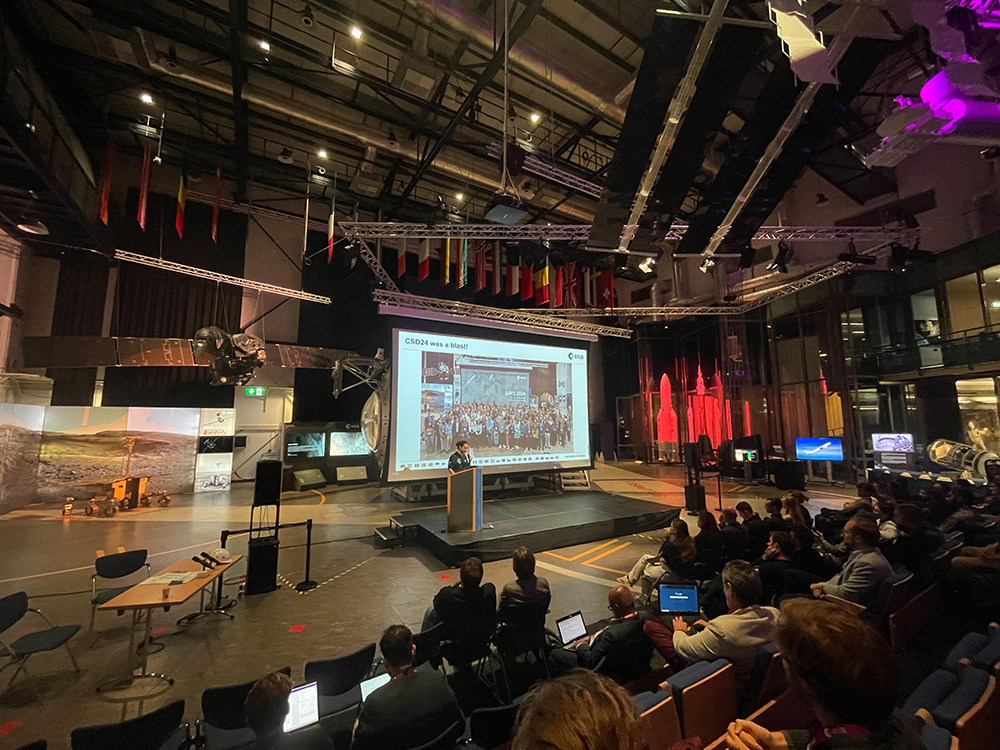
Presentations from EPFL staff and students
EPFL Space Center attended in numbers with several presentations and posters shown by members of the team and students.
Engineer Mathieu Udriot presented the “The Assessment and Comparison Tool - Status and next steps for the simplified, space-specific, prospective LCA tool” during the session on Tools and Strategies for Ecodesign in Space.
The Clean Space Days were also the perfect moment to present a case study done together with ArianeGroup, for an ESA STS project called VOLARE, in which the ecodesign team of ArianeGroup and EPFL Space Center collaborated to estimate the environmental impacts of families of future launch vehicles. The presentation named “Screening life cycle assessment of families of future reusable launchers for early-stage ecodesign considerations in the VOLARE project” done by Blandine Quelennec and Mathieu Udriot, described the process to integrate LCA in early design phase, some key results of the study, and highlighted recommendations to improve the LCA methodology and the collaboration between system design teams, and LCA practitioners.
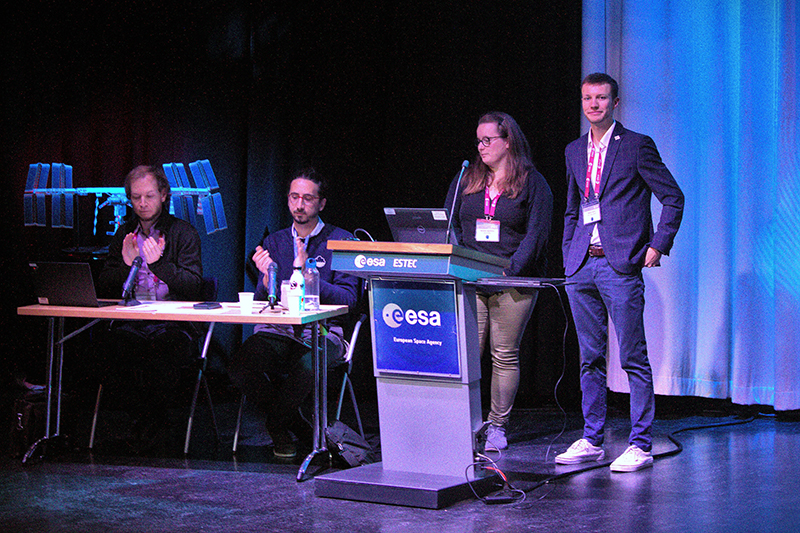
Blandine Quelennec and Mathieu Udriot presenting project VOLARE.
EPFL graduate Jonathan Wei presented his master thesis, done at MIT in the Space Enabled Research Group on “Simulating Space Policy Implications on Collision Avoidance Decisions Using the Environment-Vulnerability-Decision-Technology Framework”.
On Wednesday, during the poster session, Hannah Besser, visiting student at EPFL from Rheinisch-Westfälische Technische Hochschule Aachen presented her master thesis work on “Optimization of GEO Satellites On-Orbit Refuelling for Sustainable Space Logistics”. Next to her, engineer Marnix Verkammen showcased the progress made on the EPFL’s Handbook on sustainable practices for spacecraft mission design, a document targeted to engineers and managers who seek a broad overview of the best practices for sustainability in space (e.g. space debris avoidance and dark & quiet skies) and for space (e.g. environmental impacts) of their future space mission.
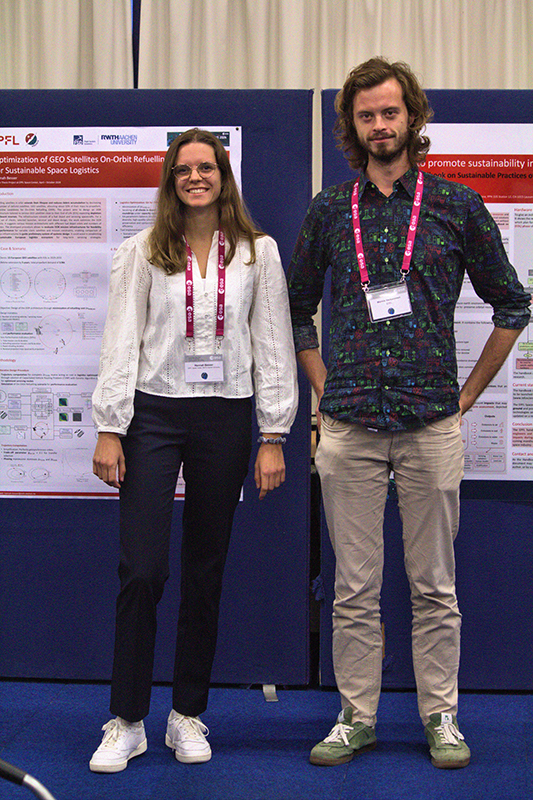
Hannah Besser and Marnix Verkammen presenting their respective posters.
The event was also an opportunity to meet again Tommaso Turchetto, alumni of the EPFL Space Center, who worked last year with us in Lausanne on his thesis about sustainable lunar missions. He was presenting his work done during his internship at ESA Cleanspace Office on Lessons learned from LCA applied to previous ESA missions.

Tommaso Turchetto presenting his work.
Besides the technical presentations and discussions, the event was a perfect moment for networking, hearing from EPFL Space Center’s current partners and understanding if any future collaborations are possible with new parties. The fact that the CSD 2024 was the largest edition yet reflects the growing need for measures to consider clean space in the industry. This is something the EPFL Space Center also sees through its ongoing industrial and educational projects in the field of space sustainability.
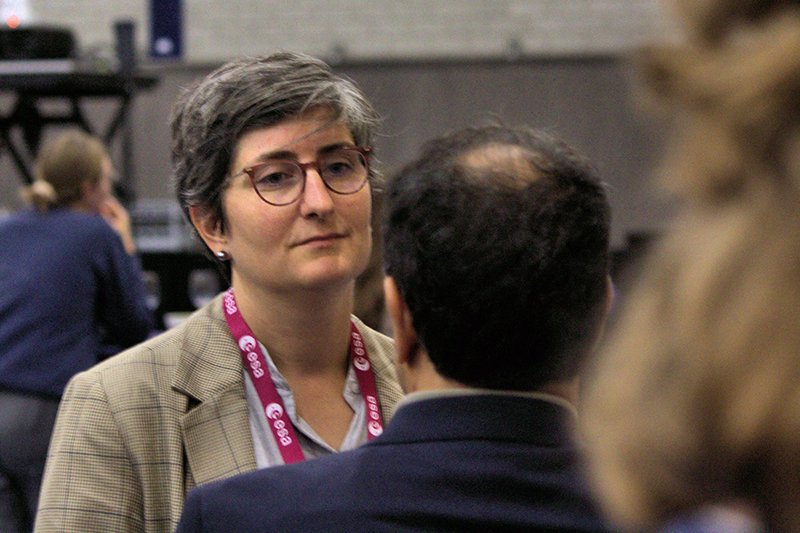
EPFL Space Center Executive Director, Emmanuelle David, during the networking event on Wednesday evening.
Ecodesign task force
Thursday afternoon was dedicated to the ESA ecodesign taskforce, attended by two EPFL Space Center engineers, Marnix and Mathieu. Discussions involving ESA, industries, and academia, included the expected ESA LCA handbook update, the need for more data and robust databases, the definition of what a simplified LCA method to be applied in the early design stage is, and the risk of greenwashing when reporting on assessments and newly developed technologies.
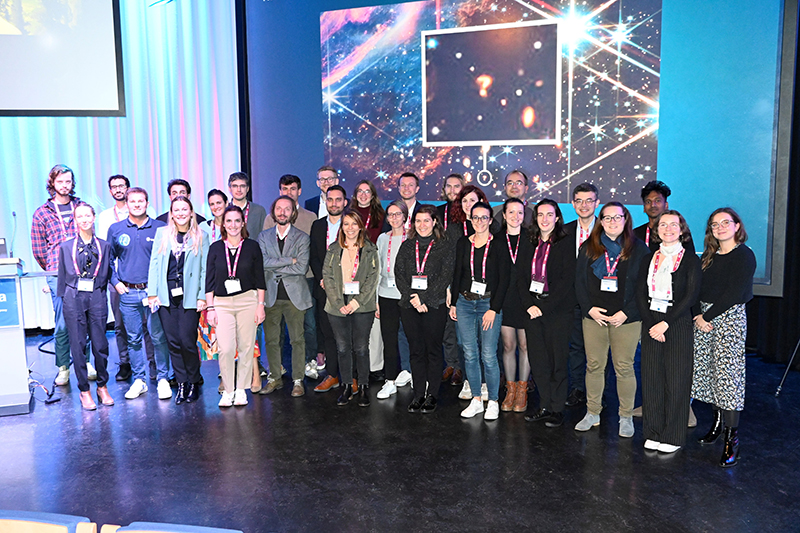
The ESA ecodesign taskforce.
Main takeaways
- Several LCA studies have been done or are being done by industries and agencies. Many of the presentations included LCA results in relative bar charts, and using the PEF single score. Some absolute values were also presented, with known limitations and uncertainties clearly identified.
- The atmospheric emissions during the launch event and the re-entry phases are still a very large knowledge gap. There is insufficient data on emissions, especially soot, nitrous oxides, and solid particles, on afterburning, and on high altitude atmospheric impacts. Tools and models shall be developed, refined, and verified with measurements. Especially to cover the time period when the exhaust plume interacts with the atmosphere, after the combustion chamber but with different timescale as existing global climate models.
- ESA is performing extensive work in developing tools and capacity for the Zero Debris Policy with the Zero Debris Technical Charter, proposing some training and also funding technology developments.
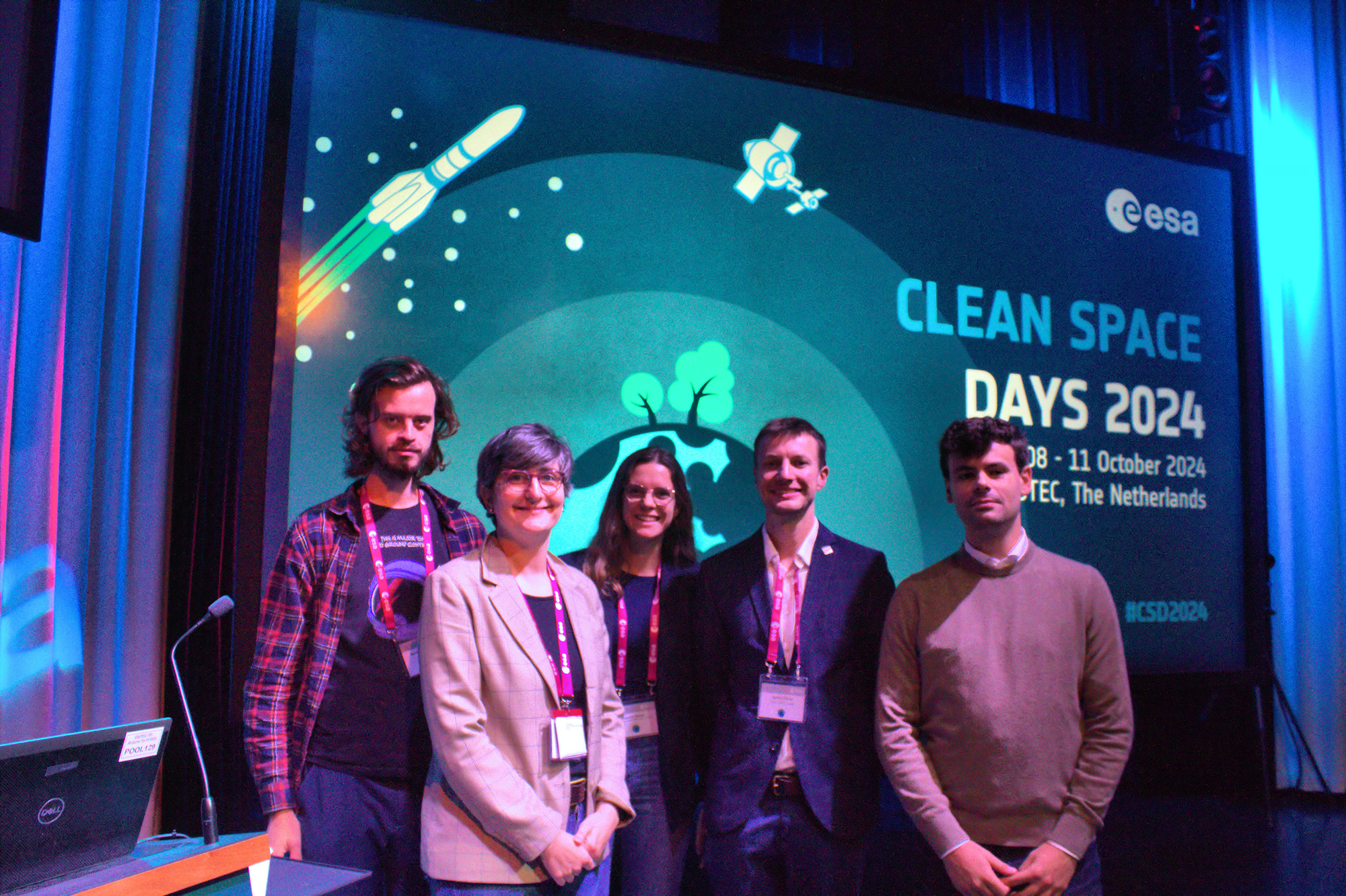
From left to right: Marnix Verkammen, Emmanuelle David, Hannah Besser, Mathieu Udriot and Tommaso Turchetto at Clean Space Days 2024 in the Netherlands.